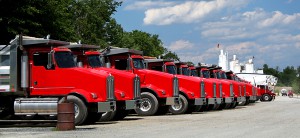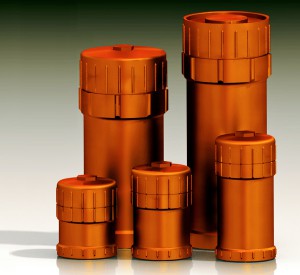 With the ever-mounting cost of fuel beyond the control of heavy-duty fleet managers, many are focusing on maintenance costs as a way of reining-in manageable expenses. Among the maintenance items that are gaining new attention are filters.
With the ever-mounting cost of fuel beyond the control of heavy-duty fleet managers, many are focusing on maintenance costs as a way of reining-in manageable expenses. Among the maintenance items that are gaining new attention are filters.
An increasing number of fleets and independent operators are looking at reusable or cleanable filters as a way of saving on maintenance costs. Filter outlays can amount to hundreds of thousands of dollars annually for some fleets. Although initially more expensive than standard filters, some reusable filters promise to survive the lifespan of the most durable high-speed diesel engines, providing a strong return on investment and a significant relief to stretched maintenance budgets.
“The industry has changed regarding reusable filters to the extent that many fleets are cleaning them on their own,” says Karl Dedolph, President of D3 Consulting (Bloomington, MN). D3 is an independent group that provides integrated sales and marketing strategies to the auto, light truck, heavy-duty trucking as well as performance and off-road transportation categories in filtration and lubrication.
“Reusable filters are not giant sellers in the marketplace yet, but sales are likely to continue growing in the future, particularly if the OEMs and the aftermarket in general are willing to acknowledge their use as a recommended practice. The fleets are the big category, and that’s what our task force is trying to look at,” Dedolph adds.
The task force to which Dedolph refers is sponsored by the ATA’s Technology & Maintenance Council (TMC), and is currently qualifying questions for the evaluation of cleanable and reusable filtration devices. He is the chairman of that task force. The filters under consideration include air, coolant, fuel, lube – any kind of filtration that is used on class 6, 7 and 8 trucks.
“The main challenges that the task force addresses are economic,” Dedolph explains. “And the potential benefits of heavy-duty truckers using reusable/cleanable filters are certainly within that scope, including savings on filter costs, inventory costs, and disposal costs.” He adds that those fleets and owner operators who are interested in the “green” benefits of “Reduce, Reuse and Recycle” will probably also be impressed with the sustainability appeal that this type of filter inherently offers.
 Dedolph was also quick to point out that while quality reusable filters do seem to meet the economic criteria, there are some other important standards that reusable filters must meet. Filtration devices are like basic insurance policies for all types of engines, helping them operate efficiently and protecting their systems, he says. In order to fulfill that “insurance” benefit, filters must be meet the accepted OEM standards for efficiency, capacity and flow. Of these three measures, capacity seems to be the prominent one in the eyes of the TMC task force. If a reusable filter does not provide the necessary capacity over the PM duration, the other economic and performance benefits could be in question.
Dedolph was also quick to point out that while quality reusable filters do seem to meet the economic criteria, there are some other important standards that reusable filters must meet. Filtration devices are like basic insurance policies for all types of engines, helping them operate efficiently and protecting their systems, he says. In order to fulfill that “insurance” benefit, filters must be meet the accepted OEM standards for efficiency, capacity and flow. Of these three measures, capacity seems to be the prominent one in the eyes of the TMC task force. If a reusable filter does not provide the necessary capacity over the PM duration, the other economic and performance benefits could be in question.
Historically, reusable/washable filters that maintained the necessary capacity have been available. The military has used these filters in severe, harsh environments with tanks and other diesel-powered vehicles that have fought in desert theaters. Other severe-duty vehicles, such as those that operate in open pit mining and quarry operations, have also used these filters successfully.
The cleanable, reusable filter technology was first developed, tested, and manufactured by Parker Hannifin’s Racor Division almost a decade before they turned the technology over to Filtration Technology Group (FTG), a full-service Racor distributor, which has independently manufactured it for the past several years. Parker Hannifin Corporation, a $13 billion, global company, is the world’s leading diversified manufacturer of motion and control technologies and systems.
FTG (Cerritos, CA) is a manufacturer of custom lubrication filters and a global supplier of quality filters and fittings that offers full-flow, cleanable, reusable filters that are designed to last the life of the engine or beyond. One of the reasons the FTG line draws attention among washable filters is because FTG purchased the Racor product, which is widely considered the top tier product in the marketplace.
As far as potential savings are concerned, FTG has cited cases where a fleet of 300 Class 8 heavy-duty trucks has tracked its use of conventional filters for a 10-year period and calculated expenditures of $350,000. There is evidence that converting to reusable filters would save the same fleet over a thousand dollars per vehicle.
“You could pick almost any number,” Dedolph cautions. “It depends on the fleet, the age of the vehicle, PM interval, and so on. Perhaps most important in many cases is the operating environment. All on-board filters are important, but perhaps where the vehicle is driven and duty cycle creates the best correlation to results and benefits for cleanable and washable filters.”
He adds that in some ways DPF (Diesel Particulate Filters) make the best case for reusable filters. The ceramic core that is used today is expensive, perhaps $4,000 to replace, Dedolph adds. Plus, the core will sometimes crack or chip or burn too hot and have to be replaced – or they won’t withstand the cleaning mechanism. “Considering those factors, a stainless steel, reusable DPF sounds like a pretty good answer,” he says.
For more information, call (800) 734-1988, visit www.ftginc.com, or write to FTG Inc. at 17785 Center Court Drive N, Suite 730, Cerritos, CA 90703-9347. By simply changing your current conventional filters to reusable/washable ones, saving money might be easier than you ever thought!
